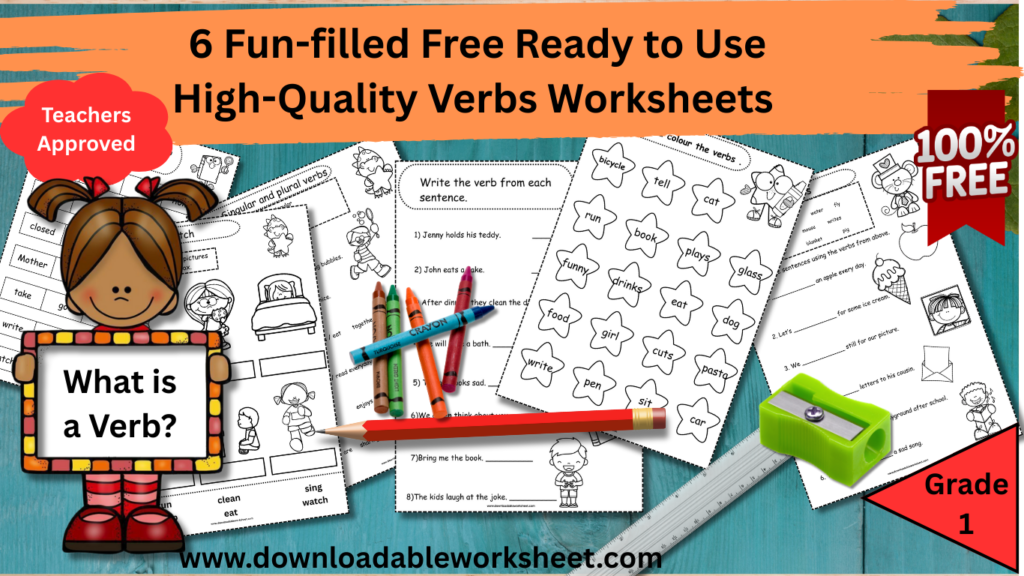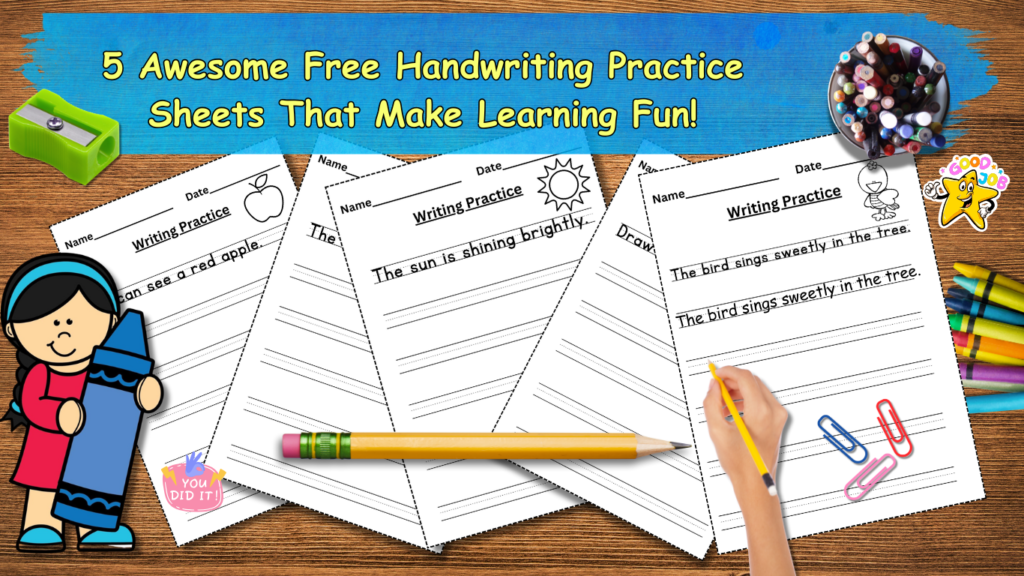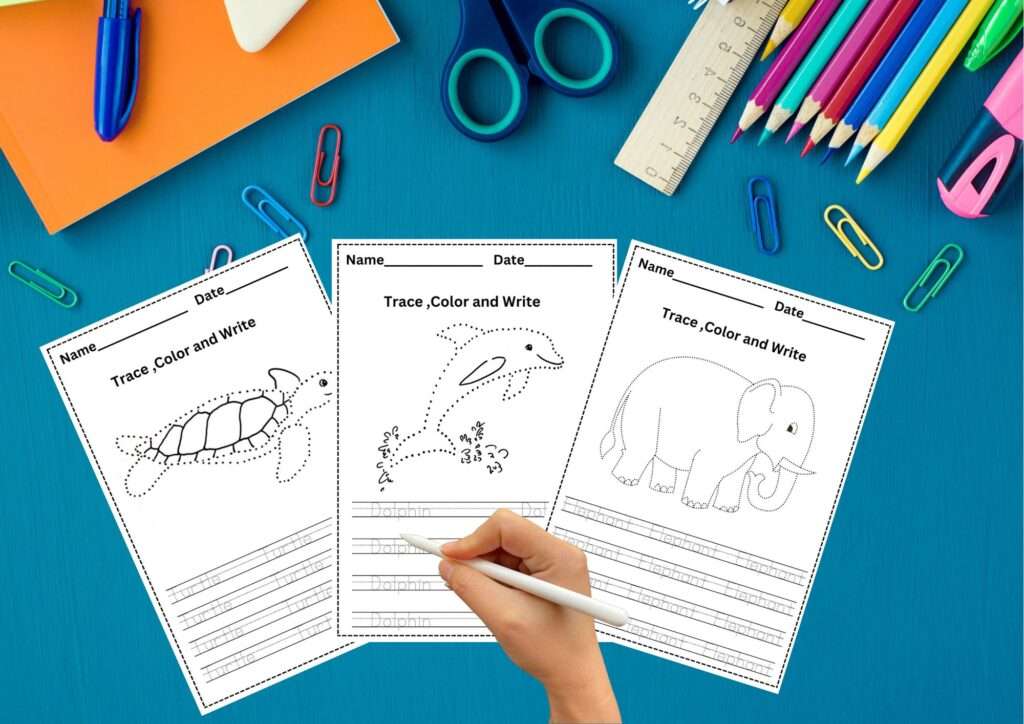Are you looking for ways to enhance your child’s skills and make learning fun? Look no further! Our collection of engaging kindergarten worksheets is designed to boost your child’s cognitive, motor, and problem-solving abilities while keeping them entertained. From alphabet and number recognition to fine motor skills and creative thinking, these worksheets cover various subjects and topics to provide a comprehensive learning experience. Each worksheet is carefully crafted to promote active learning and critical thinking, ensuring that your child stays engaged throughout the process. With vibrant colors, adorable illustrations, and interactive activities, these worksheets will make your child excited about learning and help them develop a solid foundation for future academic success. Whether you’re a parent, teacher, or caregiver, our kindergarten worksheets are a valuable resource that will help your child grow and thrive while having a blast. Get ready to embark on a learning journey filled with joy and discovery with our collection of engaging kindergarten worksheets!
Benefits of Using Worksheets for Kindergarten Learning:

Kindergarten worksheets offer a wide range of benefits that can greatly contribute to your child’s learning and development. These worksheets provide a structured and organized approach to learning, allowing children to practice essential skills in a fun and engaging way. Here are some of the key benefits of using worksheets for kindergarten learning:
1. Enhanced Learning:
Kindergarten worksheets are designed to target specific skills and concepts, allowing children to focus on areas that require improvement. Whether it’s recognizing letters and numbers, developing fine motor skills, or understanding basic science concepts, these worksheets provide targeted practice that promotes knowledge retention and understanding.
2. Active Engagement:
Worksheets offer interactive activities that require children to actively participate in the learning process. From coloring and tracing to solving puzzles and completing patterns, these hands-on activities keep children engaged and motivated, making learning a joyful experience.
3. Skill Development:
Kindergarten worksheets cover a wide range of skills, including cognitive, motor, and problem-solving abilities. By regularly practicing these skills, children develop critical thinking, logical reasoning, and decision-making skills that are vital for their overall development.
4. Independent Learning:
Worksheets provide opportunities for children to work independently, fostering a sense of self-confidence and autonomy. As they complete tasks on their own, children gain a sense of accomplishment, boosting their self-esteem and encouraging them to take ownership of their learning journey.
5. Preparation for Academic Success:
Kindergarten worksheets lay the foundation for future academic success. By practicing essential skills in a structured manner, children develop a solid understanding of basic concepts, setting them up for success as they progress to higher grade levels.
Overall, kindergarten worksheets offer a multitude of benefits that support your child’s learning and growth. The interactive nature of these worksheets, combined with their focus on targeted skill development, ensures that your child remains engaged and motivated throughout their learning journey. So, let’s dive into the different types of kindergarten worksheets and explore the exciting learning opportunities they offer!
Different Types of Kindergarten Worksheets

Kindergarten worksheets come in various types, each designed to target specific skills and concepts. Let’s take a closer look at the different types of worksheets available for your child:
1. Math Worksheets for Kindergarten:
Math worksheets introduce young learners to fundamental mathematical concepts, such as counting, number recognition, basic operations, shapes, and patterns. These worksheets use a combination of visual aids, hands-on activities, and problem-solving exercises to make math fun and accessible for young children.
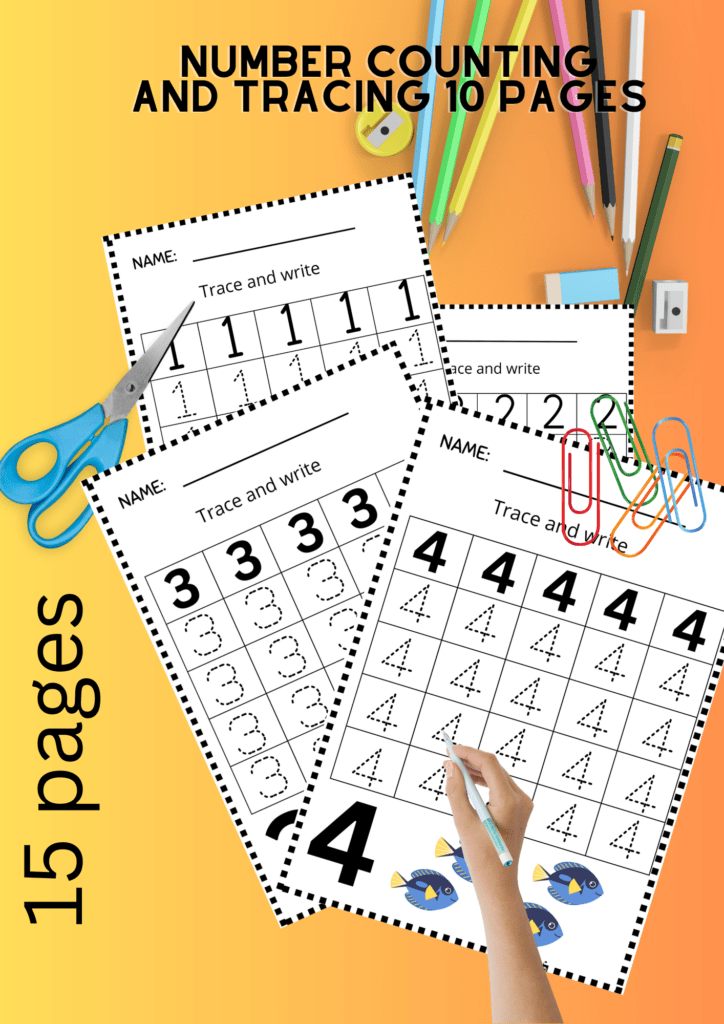
2. Language and Literacy Worksheets for Kindergarten:
Language and literacy worksheets focus on developing reading, writing, and communication skills. They help children learn letter recognition, phonics, sight words, vocabulary, sentence formation, and basic grammar. These worksheets often include activities like tracing letters, matching words, completing sentences, and reading comprehension exercises.
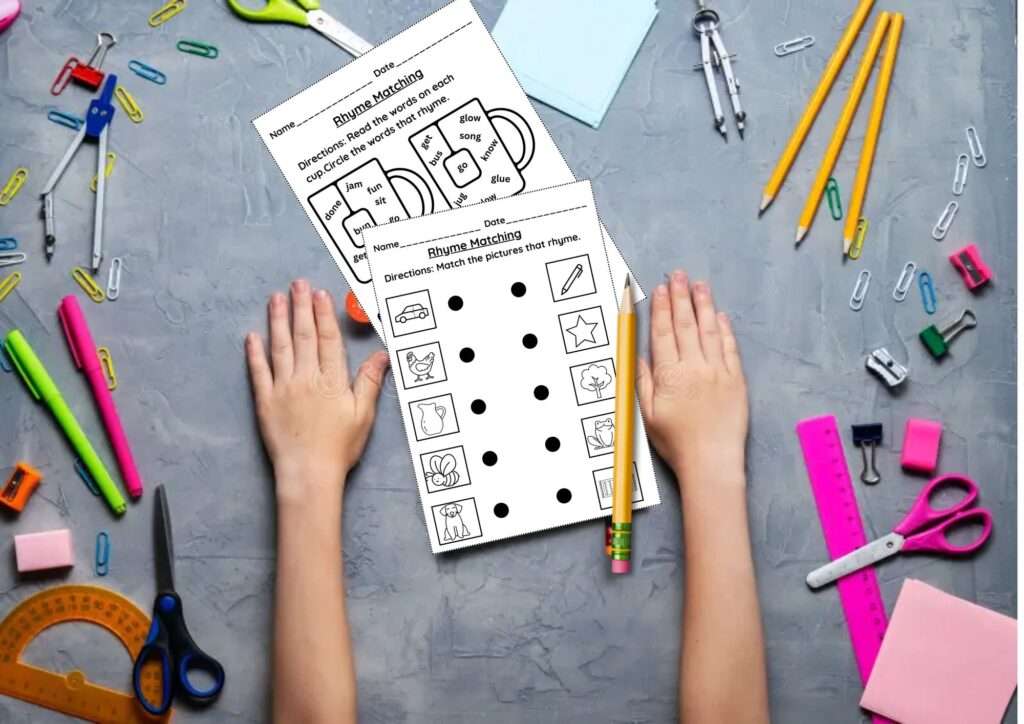
3. Science and Social Studies Worksheets for Kindergarten:
Science and social studies worksheets introduce children to basic scientific concepts, nature, animals, community helpers, and cultural diversity. These worksheets encourage exploration, observation, and critical thinking through experiments, coloring activities, and interactive tasks.
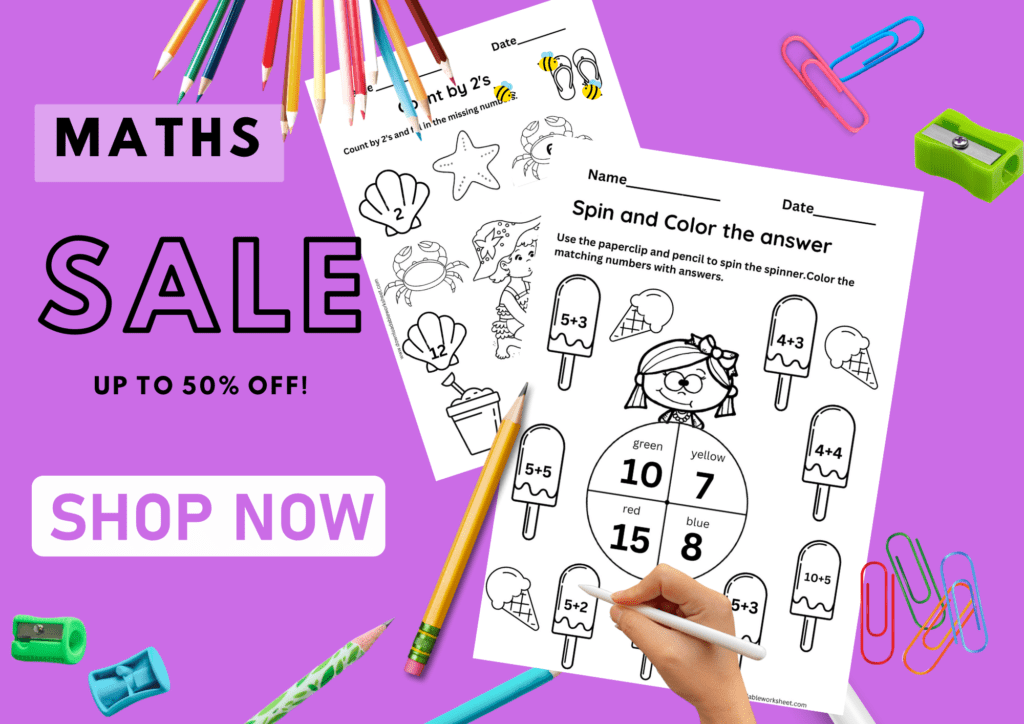
4. Fine Motor Skills Worksheets for Kindergarten:
Fine motor skills worksheets target the development of hand-eye coordination, finger dexterity, and pencil control. These worksheets typically include activities like coloring, cutting, tracing, and drawing, which help children refine their motor skills and prepare for more complex tasks like writing.
By incorporating these different types of worksheets into your child’s learning routine, you can provide a well-rounded educational experience that covers a wide range of skills and subjects. Whether your child needs extra practice in math, language, science, or fine motor skills, there is a worksheet available to cater to their specific needs. Now, let’s delve into each type of worksheet in more detail to understand how they can benefit your child’s learning.
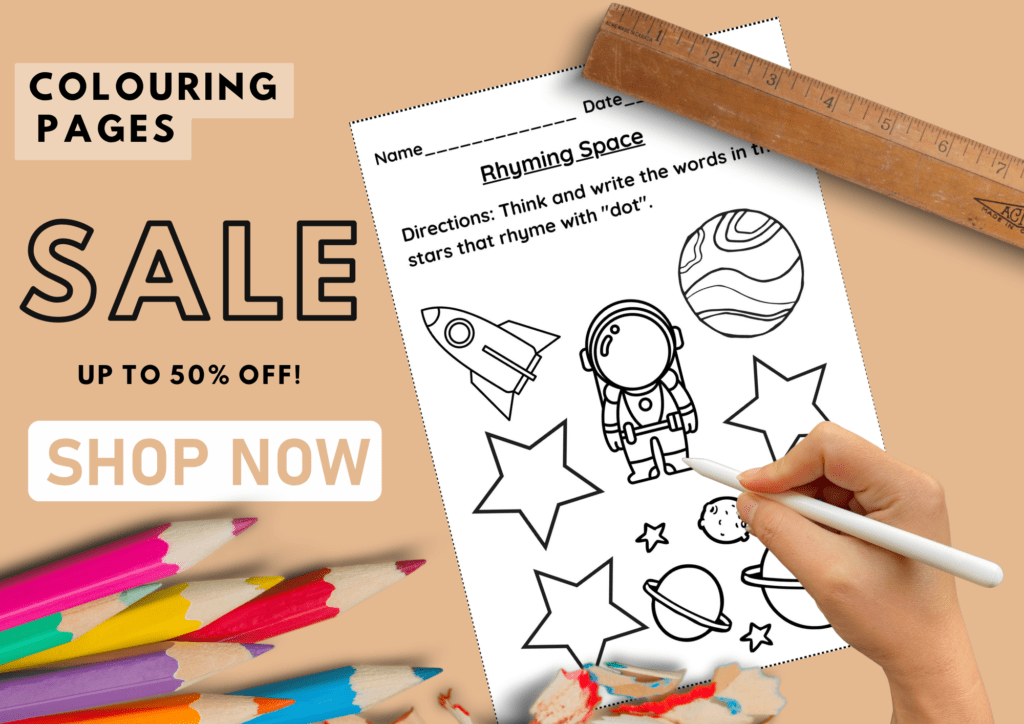
Math Worksheets for Kindergarten

Math is an essential subject that lays the foundation for logical thinking and problem-solving skills. Kindergarten math worksheets provide a structured approach to learning math concepts and develop a solid understanding of numbers, shapes, patterns, and basic operations. Here are some key features and benefits of using math worksheets for kindergarten:
1. Number Recognition:
Math worksheets introduce young learners to numbers and help them recognize and identify numbers from 1 to 10, and eventually up to 20. These worksheets use colorful visuals and interactive activities to make number recognition engaging and enjoyable.
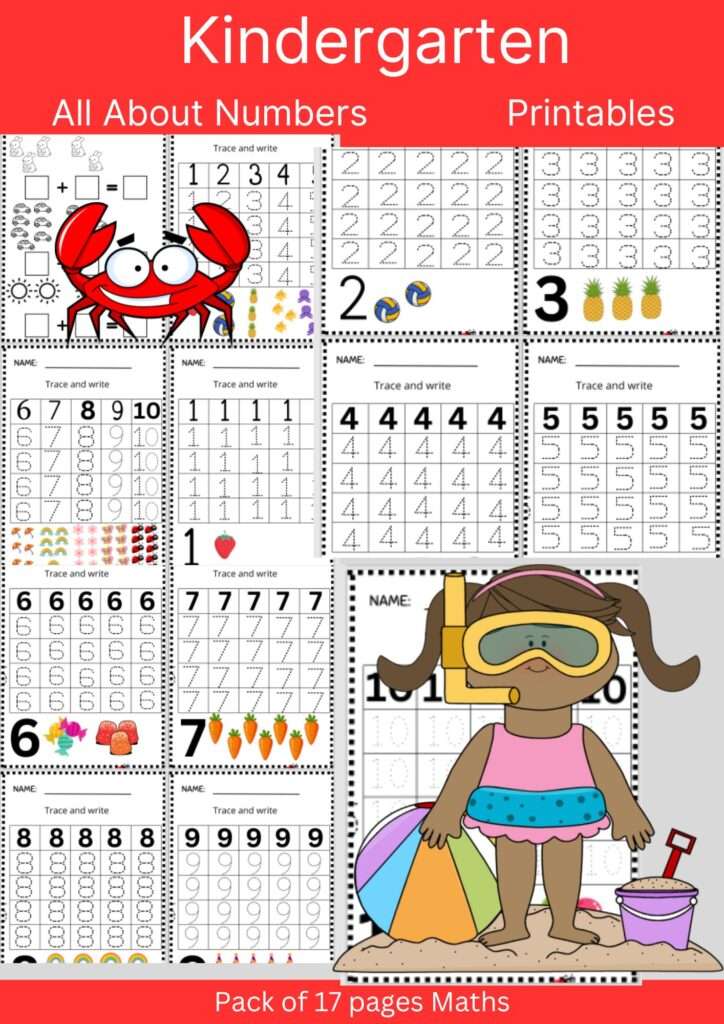
2. Counting Skills:
Counting worksheets help children practice counting from 1 to 10, 1 to 20, or even higher numbers. These worksheets often include fun visuals like animals, fruits, or objects that children can count and match with the corresponding number.
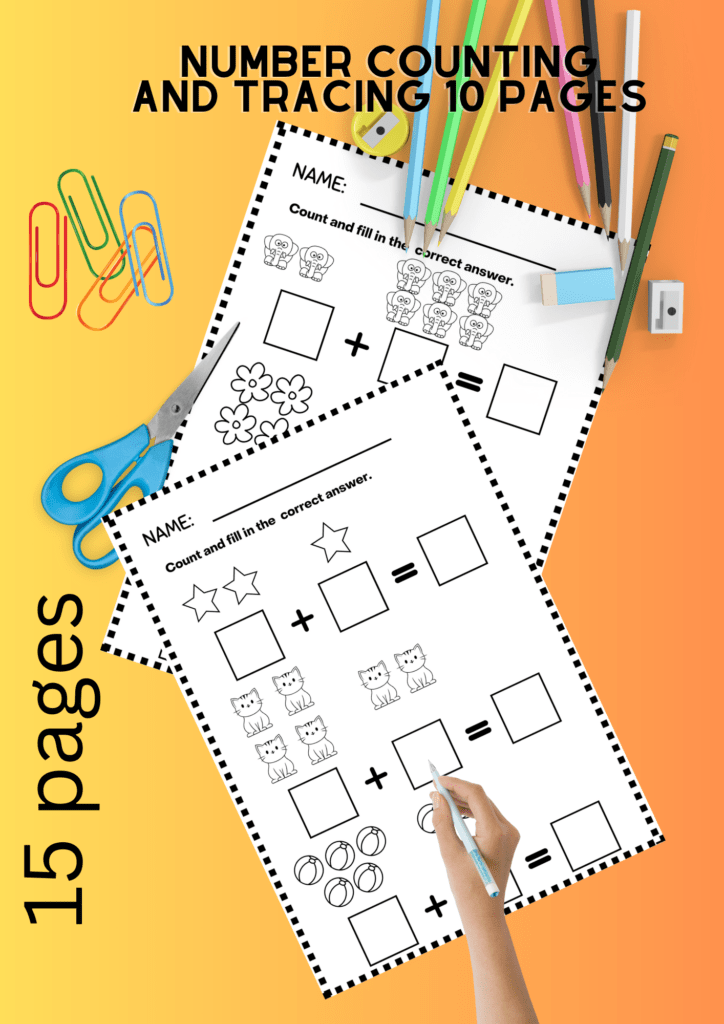
10 Must-Have Worksheets for early education to Boost Your Child’s Education JourneyFooter
Addition and subtraction worksheets for kindergarten introduce children to basic operations using simple and visual representations. These worksheets help children understand the concept of addition and subtraction through hands-on activities, such as counting objects, using manipulatives, or solving simple word problems.
4. Shapes and Patterns:
Math worksheets often include activities that focus on shapes and patterns. These worksheets help children identify and classify shapes, recognize patterns, and complete sequences. By engaging in these activities, children develop spatial awareness and logical thinking skills.
Math worksheets for kindergarten provide a solid foundation for future math learning. They help children develop number sense, critical thinking, problem-solving abilities, and logical reasoning skills. By incorporating math worksheets into your child’s learning routine, you can ensure that they build a strong mathematical foundation from an early age. Next, let’s explore the exciting world of language and literacy worksheets for kindergarten.
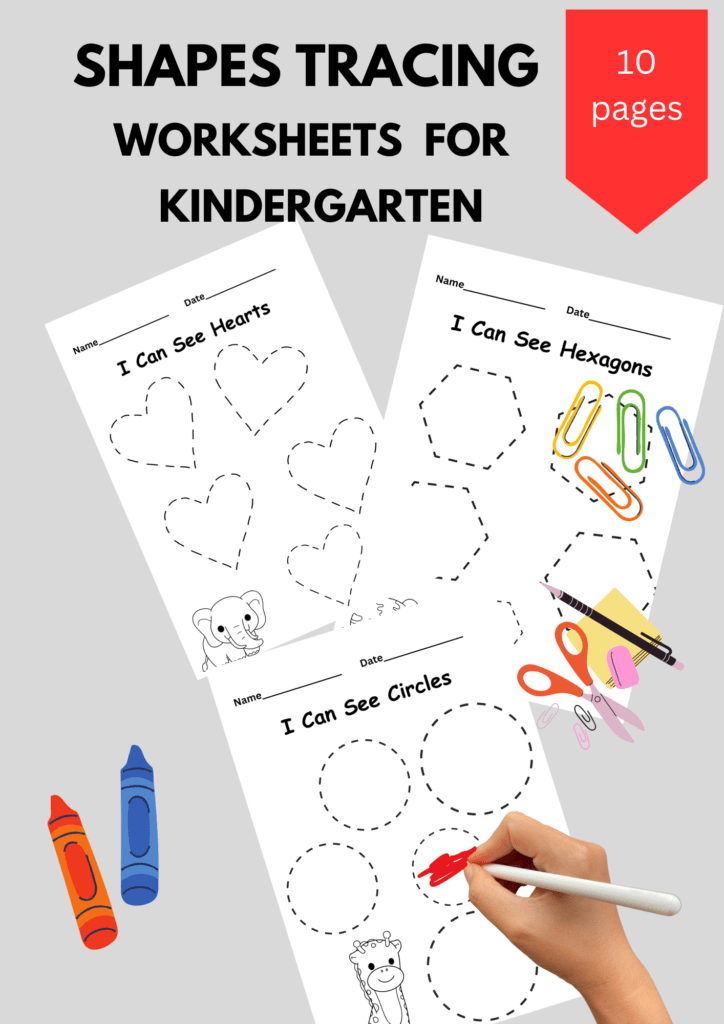
Language and Literacy Worksheets for Kindergarten
Language and literacy skills are essential for effective communication, reading, and writing. Kindergarten language and literacy worksheets provide a structured approach to building these skills, making learning engaging and enjoyable. Here are some key features and benefits of using language and literacy worksheets for kindergarten:

1. Letter Recognition:
Language worksheets introduce children to the letters of the alphabet and help them recognize and identify both uppercase and lowercase letters. These worksheets often include tracing activities, matching exercises, and letter-sound associations to reinforce letter recognition.
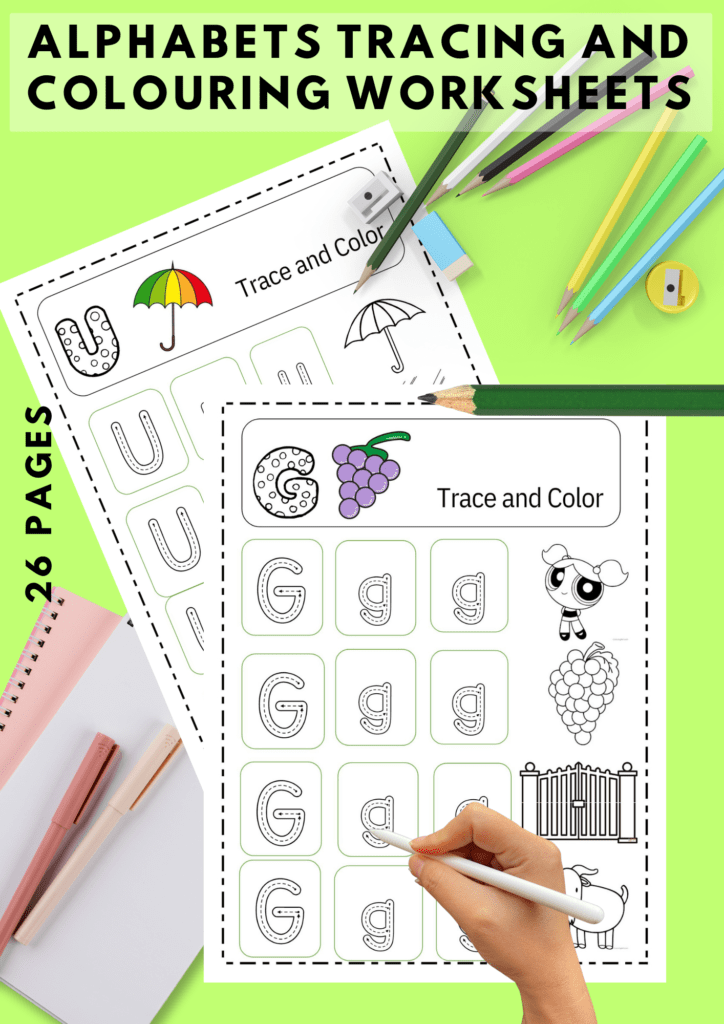
2. Phonics and Sight Words:
Phonics worksheets help children learn the sounds that each letter makes and how these sounds combine to form words. Sight word worksheets focus on teaching children high-frequency words that they will frequently encounter in their reading. These worksheets often include activities like matching, tracing, and reading simple sentences.
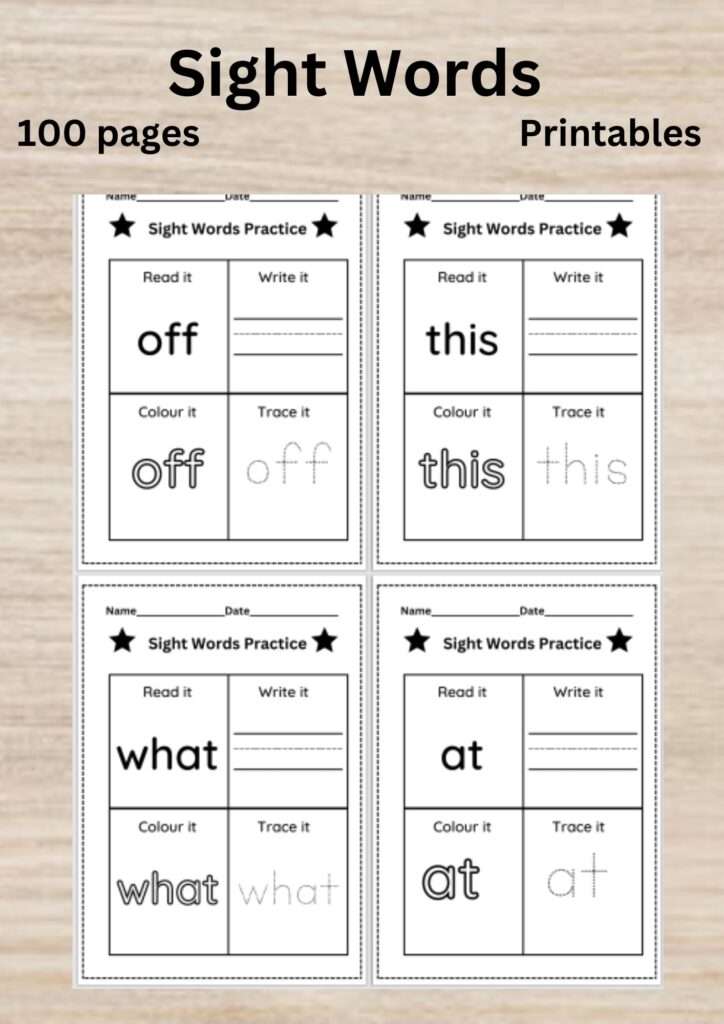
3. Vocabulary Development:
Language and literacy worksheets introduce new words and help children expand their vocabulary. These worksheets often include activities like labeling pictures, completing sentences with the correct word, and identifying synonyms and antonyms.

4. Reading Comprehension:
Reading comprehension worksheets for kindergarten focus on developing comprehension skills and understanding of simple texts. These worksheets often include short stories or passages followed by questions that assess a child’s understanding of the text.
Language and literacy worksheets for kindergarten provide a strong foundation for reading, writing, and communication skills. By practicing these worksheets, children develop phonemic awareness, letter-sound recognition, vocabulary, and reading comprehension skills. These skills are essential for their academic success and overall language development. Next, let’s explore the exciting world of science and social studies worksheets for kindergarten.
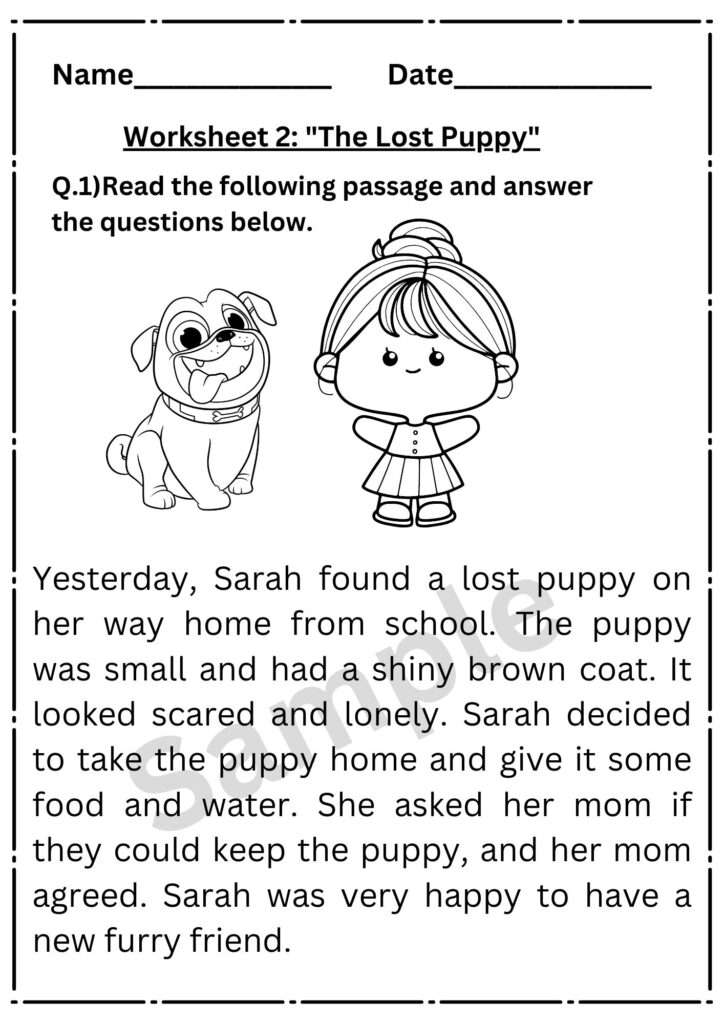
Conclusion:
In conclusion, kindergarten worksheets play a crucial role in early childhood education by providing a comprehensive and engaging learning experience. These worksheets foster the development of fundamental skills, such as literacy, numeracy, critical thinking, and problem-solving abilities. They offer a structured and interactive approach that stimulates young minds and cultivates a love for learning. Additionally, kindergarten worksheets can be customized to meet individual learning needs, ensuring that each child receives the necessary support and guidance. By integrating worksheets into the curriculum, educators can create a solid foundation for academic success, preparing children for the challenges that lie ahead. Ultimately, kindergarten worksheets serve as valuable tools that empower young learners, ignite their curiosity, and lay the groundwork for a lifelong love of learning.


